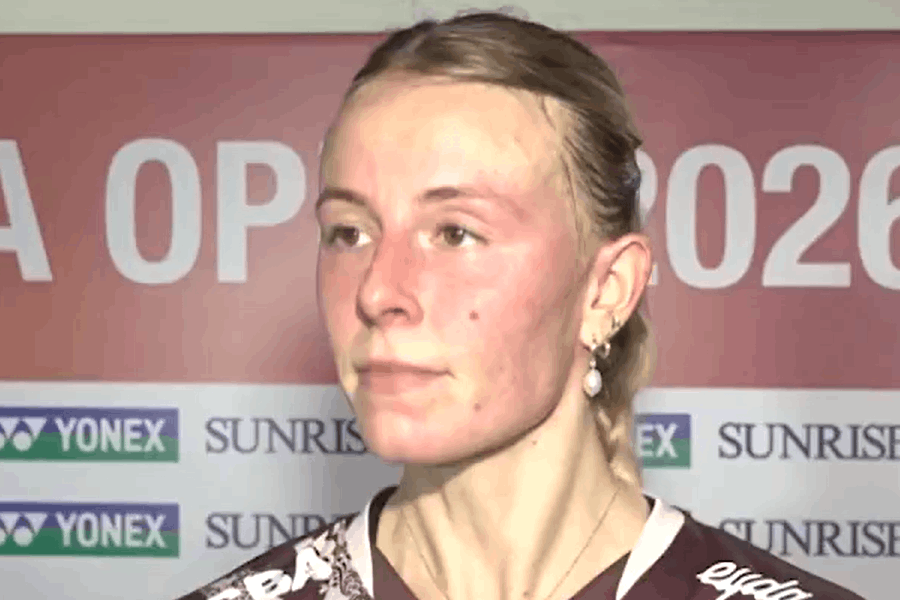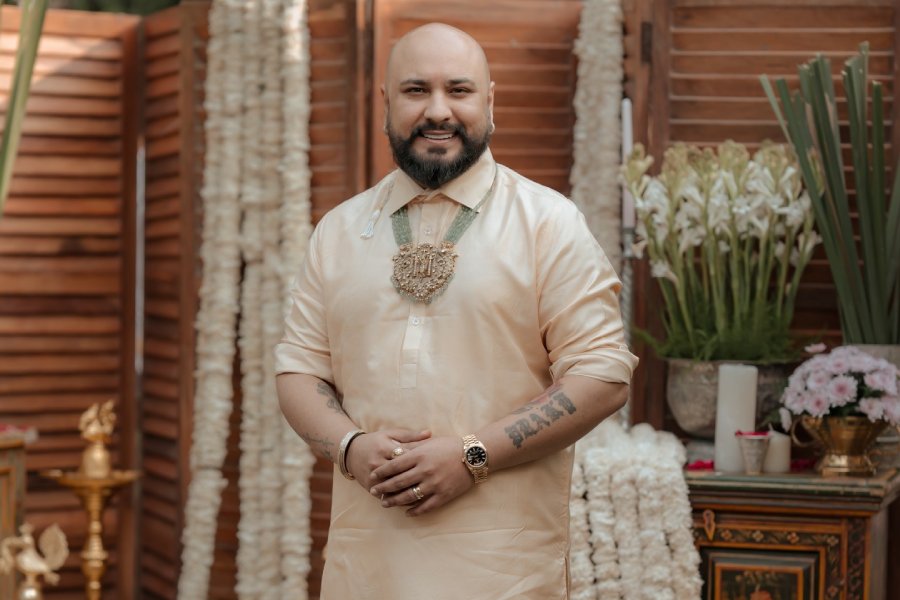 |
| L'Or?al |
It had all the hype of a Bollywood film launch. At the centre of attraction was actress Dimple Kapadia cutting ribbons and cakes and being followed by the flashbulbs and television cameras. Also out in strength was Delhi?s Page 3 brigade tucking into the plentiful wine and cheese.
What was the brouhaha all about? Nope, it wasn?t a Bollywood-style muhurat. And it wasn?t even a fashion show with models sashaying down the ramp. It was just the opening of a hair salon.
Before you jump to the conclusion that your neighbourhood ?Shahnaz-trained Dolly aunty? is going places, rest assured we aren?t talking about another run-of-the-mill local beauty parlour. Kapadia was inaugurating the state-of-the-art Hair Design Centre ? an exclusive hair salon by Dutch hair products giant Kuene. Simply put, Dolly aunty is getting a run for her money from the big boys of the game.
Thanks to deep-pocketed corporates such as L?Or?al, Lakm?, Kuene and Schwarzkopf, the beauty parlour (oops salon) industry is getting a makeover. The good old one-room beautician?s parlour is now morphing into bigger, better, colour-coordinated, professionally-run beauty spas. If pink is the colour for Lakm?, it?s purple for Kuene and everything from the hairbrush to the chair and washbasin is imported and branded. And of course, they have the moolah to get the right celebrity to ensure a splashy opening.
That?s not all. The salons make sure that you get ?all the right treatments?. There?s always a ?free consultation? with a beauty advisor who will check your skin texture and suggest what type of facial is best for you. There?s also the hair expert who will examine the customer?s hair to ?understand? it before suggesting just the right cut. If you?re lucky, you may even get free advice from a celebrity hairstylist flown in all the way from the fashion capitals of the world. Most of the parlours throw in a free shampoo and blow-dry too. Or, even a free manicure to go with a special facial. Indulgence is the mantra.
Says Kapil Kumar, managing director, Kuene India, ?The beauty industry has changed tremendously in the past five years. Consumers are looking for professional services of international standards, which can be provided only by big corporates like us.? Kuene operates 10 company-owned salons in India and is hoping to open at least five more in the coming year, including one in Calcutta.
Kuene is not the only one spreading its wings in the salon market. L?Or?al, the leader in the haircare market, already has tie-ups with 4,000 salons across 66 cities, and is planning more. Lakm?, the pioneer in the field, has four company-owned salons and 65 franchisees. Says Anil Chopra, vice-president, Lakm? Lever, ?We plan to have 100 more franchisees by this year-end. The business prospects of the market are extremely promising. The beauty industry has grown immensely in recent years due to the increase in awareness about beauty and expert beauty services.?
German giant Schwarzkopf, with 50 exclusive salons, is also in expansion mode. Besides exclusive salons, the company also has purchase agreements with 1,500 beauty parlours across big cities. ?But we are very discerning about our salons. So we?re not aggressively expanding, but intend to have more exclusive salons in the coming year,? says Shekhar Sethu, general manager (India), Schwarzkopf Professional.
 |
| Keune |
Why are corporates on a beauty binge? For years, companies which had a range of personal care products have been hardselling them to hairdressers and beauty salons. Now, they?re looking at forward integration and getting into the beauty business themselves. And why not? Consider this: The beauty parlour industry is roughly estimated at Rs 1,800 crore growing at an impressive 42 per cent. At last count, there were 81,000 parlours across India in cities with a population of over 1 million.
Clearly, it is turning into a dog-eat-puppy industry with corporate giants putting their money and muscle power into it. Which is not to say that neighbourhood beauticians are getting ready to pack up. On the contrary, companies like Lakm? and L?Or?al prefer to forge tie-ups with established parlours. While Lakm? enters into franchise-agreements with independent salon owners, L?Or?al and Schwarzkopf prefer to have purchase agreements.
Says Vismay Sharma, director, L?Or?al Professional, ?We identify potential parlour owners and then educate them about our products and train them on international hair and fashion trends. We only associate ourselves with salons with the ambience and skilled staff to provide standard service to customers.? More importantly, it makes good business sense to have purchase agreements as it ensures good sales figures.
The franchise route that Lakm? takes is mutually beneficial to the company and the parlour owner because the corporate pumps in the money to upgrade the parlour and give it a smart look complete with colour-coordinated walls and fancy mirrors. Says Lakm??s Chopra, ?We also train the staff in reputed beauty institutes. We are all set to launch the Lakm? Training Academy soon and then all the training will be handled out of the academy.?
Meanwhile, the company itself benefits by the volume sales. So while Lakm? salons not only stock a range of products that go under its brand name, it also showcases some of Hindustan Lever?s other products like Sunsilk. The reason is simple: while margins in the traditional FMCG business hover between 8 per cent and 15 per cent, the volume of sales at salons is phenomenal. According to Sethu, on an average, salons in the big cities alone consume about Rs 500 crore worth of haircare products.
Obviously, it makes sense to move beyond over-the-counter sales and get into where the real action is. In an age where brands of various pedigrees are fighting for attention, affiliated salons become an ideal channel to route your products through.
Says Ambika Pillai, who has a tie-up with L?Or?al, ?There is more money in the salon business even for corporates for the simple reason that people spend more in a parlour.? For instance, a box of good hair colour retails at around Rs 350 to Rs 400. Now, if you go to a parlour for a cut, wash and colouring, you end up spending anything between Rs 3,000 to Rs 4,000.
That explains why Kuene prefers only company-owned outlets unlike L?Or?al even if it means investing close to Rs 35 lakh per salon. ?We don?t believe in tie-ups as there?s no way you can keep control over the services or product usage,? says Kumar. However, with plans to expand, Kuene is considering exclusive franchises. ?But we?ll keep management control with us. The staff will be trained by us in Holland and we will not allow any compromise on quality,? Kumar adds.
It is not just the growing awareness among customers that is prompting beauty companies to jump into the service business. The shopping complex culture with its massive glass structures and state-of-the-art shops have fuelled salon growth. Says Kuene?s Kumar, ?Big brands like us need an environment that matches our image. These plush complexes are the perfect places to open shop. They are well-managed, hygienic and get the right customer profile that we are looking for.?
Clearly, the right customer profile is the multiplex-fed middle class willing to spend a few extra bucks on getting a hair makeover or skin treatment. Says Neetu Sahdev, a frequent visitor to the Lakm? salon, ?I don?t even think the pricing is that different. You get to sit in a hygienic environment, sure that the person attending you is well-trained.? Her sister Ananya prefers the Kuene experience where she ?always gets a free shampoo and blow-dry?. She adds, ?I don?t think the international brands are too expensive. Even at my neighbourhood parlour, I used to spend Rs 400 on a hair cut.?
Says Schwarzkopf?s Sethu, ?Our brand is one of the most expensive in the market today: our shampoo bottle alone costs Rs 400. We sell at a premium because we are image-driven unlike other brands that?re volume-driven. But interestingly, we have not faced any price-resistance from our customers because they are willing to spend extra for the service and the ambience.? However, for the more price-conscious smaller cities, the German giant intends to bring its more humble sister company Indolan, based in UK. ?Internationally, Indolan is a mid-range brand. We?ll tap the smaller cities through this,? says Sethu.
One of the companies that has sensed the potential in small cities is the Chennai-based CavinKare Ltd. The company has entrenched itself in the southern cities including Chennai, Thiruvananthapuram, Kochi and Manipal with its three chains of beauty salons.
The company cleverly floated a separate chain for each income-level. At the lower end is the Fyne Cut, a salon for men. Positioned as a value-for-money brand, it competes with the neighbourhood barber. The Green Trends chain targets middle-class men and women while Limelight is the high-end offering aimed at people looking for luxury. Says S. Jagdish, head, Retail, CavinKare, ?One of the growing trends now is the emergence of unisex salons. Men are beginning to give importance to personal grooming as well.?
It is this belief in an expanding customer base that is now encouraging CavinKare to tap the market in north India. And armed with a tie-up with hair major Wella of Germany, the company is also hoping to ward off competition from homegrown Lakm?, Shahnaz Husain or Blossom Kochchar.
That?s easier said than done. Warding off beauty gurus like Husain and Blossom Kochchar who have already established big retail chains will be tough even for the deep-pocketed corporates. Husain, in fact, was among the first to establish her chain of beauty parlours across the country, and the world. Today, she runs nine company-owned salons and is spreading rapidly through franchisees.
Says Husain, ?I opened my first franchisee salon in Calcutta in 1979. Now, we?ve added one more in the city at Swabhumi. In total, we have about 400 franchisees across India. Since we focus only on herbal treatments, I don?t think we compete with any of these international brands that are coming into the market.?
Blossom Kochhar too, runs her own salons, besides providing expert advice to independent beauty spas such as the one in Vedic Village in Calcutta. Says she, ?I provide trained personnel to beauty parlours and we ensure that they use our products the right way.?
 |
| Schwarzkopf |
So be it the Cleopatra therapy by Blossom or the Gold Facial by Shahnaz, the beauty divas have huge presence even in the unorganised sector as beauticians who train from their institutes use their products, thus doubling up as their brand ambassadors.
?Brands such as Shahnaz and Blossom enjoy great loyalty because customers identify with their face and personality, while corporates are always faceless. They also have the first-mover advantage in the industry,? says market analyst Arvind Mahajan.
Which is why, big corporates spend lots of money on promotional activities creating much-needed hype and brand recall. Besides constant presence in high-end glamour magazines through advertising, they get celebrity endorsements and programmes with international fashion gurus.
Says L?Or?al?s Sharma, ?Our brand ambassadors are our clients also. We have tied up with all the well-known names in the industry. So be it Ambika Pillai in Delhi or Sunflower or A. John in Calcutta, we?ve established ourselves in the salon industry.?
Will the giant supermarkets of the beauty trade wipe out the thousands of smaller, neighbourhood players? That may be a long way from happening. But clearly, for the upwardly-mobile, newly-affluent Indian middle-class, corporate salons are the beauty trade?s new cutting edge.
Photographs by Pabitra Das and Rupinder Sharma
Pamper parlour
The corporate-run beauty parlours are already pushing lots of new treatments. These are not only a way of pampering customers but also a great marketing tool
The Skin Spa: A skin treatment programme at the Lakm? salons, it is a range of 46 facials customised especially to suit your age and skin type. A skin specialist gives customers advice after a thorough check-up of their skin requirements. The Skin Spa facials draw from the latest in the world of skincare and are developed by Lakm??s professionally-trained beauty therapists.
The Essential: This is what Schwarzkopf calls a forecast programme. A specially-trained professional is on hand at the salons to educate customers on what is hot and hip on the international ramps. With two collections, the fall/winter and the spring/summer, the scheme aims to give you the right look, cut and style and hair colour that is not only fashionable, but also customised to your personality.
The Makeover: This is for the adventurous. At the Kuene salons, hair experts flown in from the international circuit will give you a completely new look with a brand-new haircut and colouring. They will also give you a few lessons in maintaining the glamorous look.










